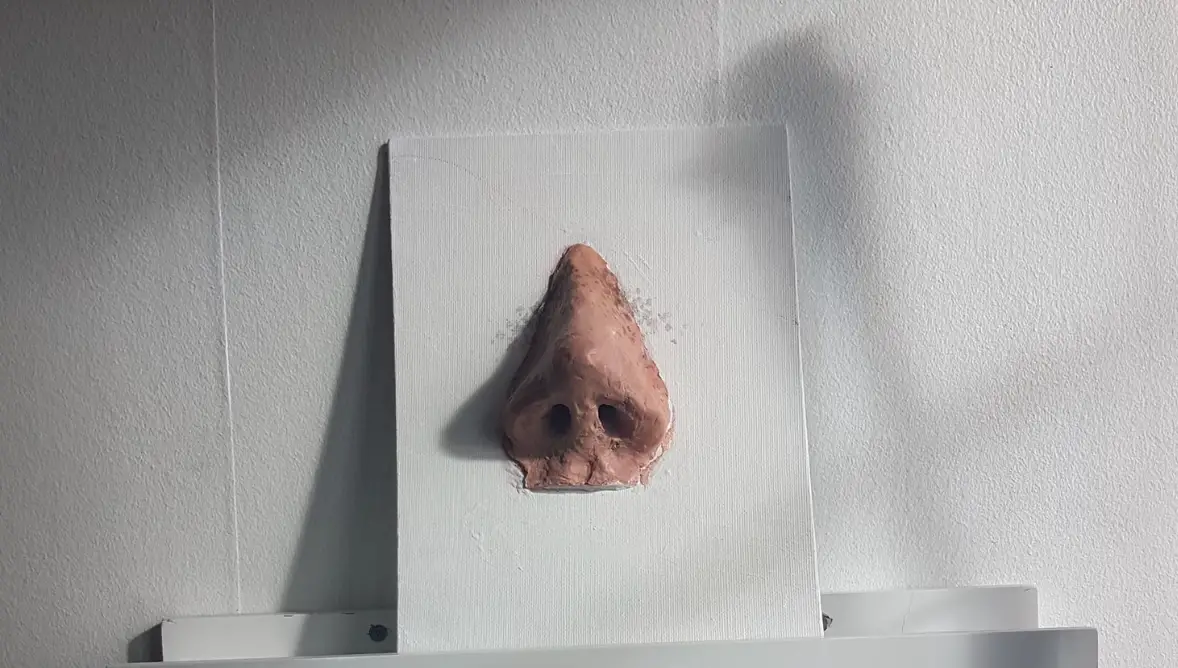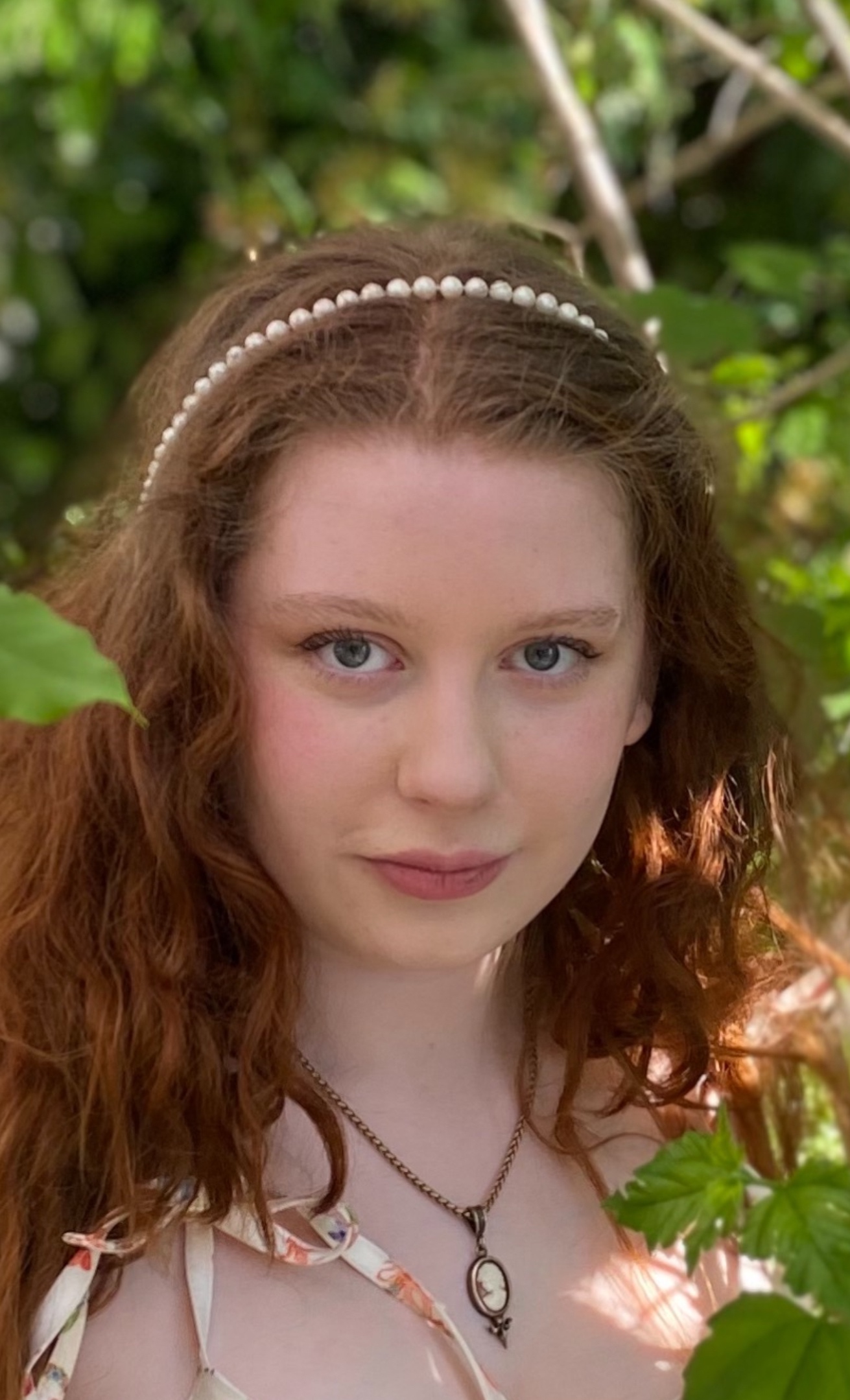Bella Hadid struts down the runway, adorned in clothing worth more than some people’s annual rent and harnessing a cat-like glare that could turn you into stone. Videos and photos of Hadid’s modeling gigs on her Instagram portray the glitz and glamor that many yearn for, getting paid big bucks to look beautiful. But the model’s life is not as ritzy as it appears — there’s a sinister underbelly to beauty standards and expectations.
In a March 2022 Vogue interview with Rob Haskell, Hadid brought the exhausting nature of the modeling industry to light, as well as her struggles with eating disorders and Lyme disease. She also discussed how she is constantly compared to her fellow model and sister, Gigi Hadid, explaining how she felt like the “uglier sister” growing up. However, one aspect of Hadid’s discussion really caught the internet’s attention.
She discussed her feelings of regret about having a nose job when she was 14 years old, stating, “I wish I had kept the nose of my ancestors,” and “I think I would have grown into it.” By ancestors, Hadid means her half-Palestinian heritage, something she has been very vocal about amid the Palestinian-Israeli conflict.
Being only a teenager when she had the rhinoplasty, was it truly Hadid’s responsibility? Her parents have been scrutinized on the internet for letting their daughter get the procedure, something many teenagers desire, among other growing pains. Twitter user @Memz_Mo wrote, “So Bella Hadid has finally admitted to getting a nose job,” then addressed her parents, stating “I’m just shocked Yolanda & Mohamed let her get a nose job at 14. FOURTEEN years old.” Others question the ethics of the doctor who performed the procedure, as teenagers are still developing.
This is not the first time Hadid’s mother Yolanda has been under fire for her uncouth comments. Formerly starring in “The Real Housewives of Beverly Hills,” Yolanda Hadid was shown aggressively controlling her daughters’ diets and making racially charged statements. Yolanda Hadid has also been criticized for an obsession with Eurocentric beauty, applauding Gigi Hadid’s blond hair and blue eyes, and calling her an “all-American girl.” Fans have brought attention to this blatant favoritism, noting her desire to get Gigi into the modeling industry more fiercely than Bella, while simultaneously emphasizing Bella’s alleged exoticism in comparison to her sister.
A parent is required to give consent for a minor’s cosmetic procedure, making it appear to some that Yolanda may have been motivated by her distinctly Eurocentric mindset to subject her daughter to the possible complications of plastic surgery. Twitter user @4valeria_ wrote: “she’s always tried to make those girls look as white and eurocentric as possible, especially bella, after watching real housewives i really think she favoured gigi bc her features were closer to what yolanda wanted.”
The term Eurocentric is linked to discourse regarding Hadid’s rhinoplasty — but what does it mean, and why is it so heavily associated with noses? Eurocentrism refers to a viewpoint that favors European mindsets and aesthetics, regarding them as being superior to those of other regions.
Historically, nose size and shape have been alleged indications of one’s whiteness, a connotation that continues to this day. During the 19th and 20th centuries, rhinoplasty was a known method of “passing” as white, and some of the earliest nose jobs were to fix Jewish “nostrility” to avoid racial violence.
Noses that are considered unattractive have long been associated with non-white ethnic groups, and in an American society that is systemically racist, one’s nose can affect how they are perceived on a personal and professional level. Rising debates stemmed from this fact — are people getting nose jobs because they really want to, or because they feel obligated to in a society that prefers a “ski slope” nose?
The “ideal” nose has its own set of trends and aesthetics attached to it, which usually connects to European whiteness. The Duchess of Cambridge, Kate Middleton, has been said by many to have the ideal nose. But not everyone is born with this shape, with variations ranging from long and bumpy to short and smooth. The picking and choosing that comes with an American beauty standard demonstrates that the body is viewed as a fleeting trend, like clothing or home decor.
It is no coincidence that the plastic surgery industry exploits these insecurities related to body “trends,” helping to feed a multi-billion dollar industry by making people dislike their appearances. After all, a nose job costs over $5,000 on average, if not more. Social media filters also perpetuate nose-hating, with filters that thin and distort ethnic noses to fit Eurocentric beauty standards.
Physical traits from certain ethnicities come in and out of style, while other features have been consistently frowned upon. The Kardashians, for instance, have been critiqued for Blackfishing by making their skin artificially darker and braiding their hair in traditionally Black hairstyles. Despite this, Khloe Kardashian has had a nose job, feeding into the white, Eurocentric ideal. The Kardashian family is half-Armenian, a culture that is rich and unique in itself, and instead of celebrating their ethnic features, they distort them to fit within an unreachable standard.
What kind of message is being sent to young audiences when America’s most famous influencers are changing their appearances as if they are video game avatars? Authenticity is crucial amid the plethora of Instagram filters and Facetune modifications.
Perceptions are beginning to change in some realms, though. The Cut deemed 2021 the “Year of the Strong Nose,” bringing mention to the film “House of Gucci,” which stars Lady Gaga and Adam Driver, two people with prominent noses. As a statistical whole, people seem to be catching on, with nose jobs dropping 43% in the last 20 years.
Representation is needed for the young “Bella Hadids” that are experiencing the insecure teenage blues; after all, seeing someone that looks like you be successful and beautiful is a form of validation in and of itself. As teens across the globe look into their mirrors, searching for imperfections, one can only hope that the rising love of all noses prevails, helping them find solace in their unique beauty.
















